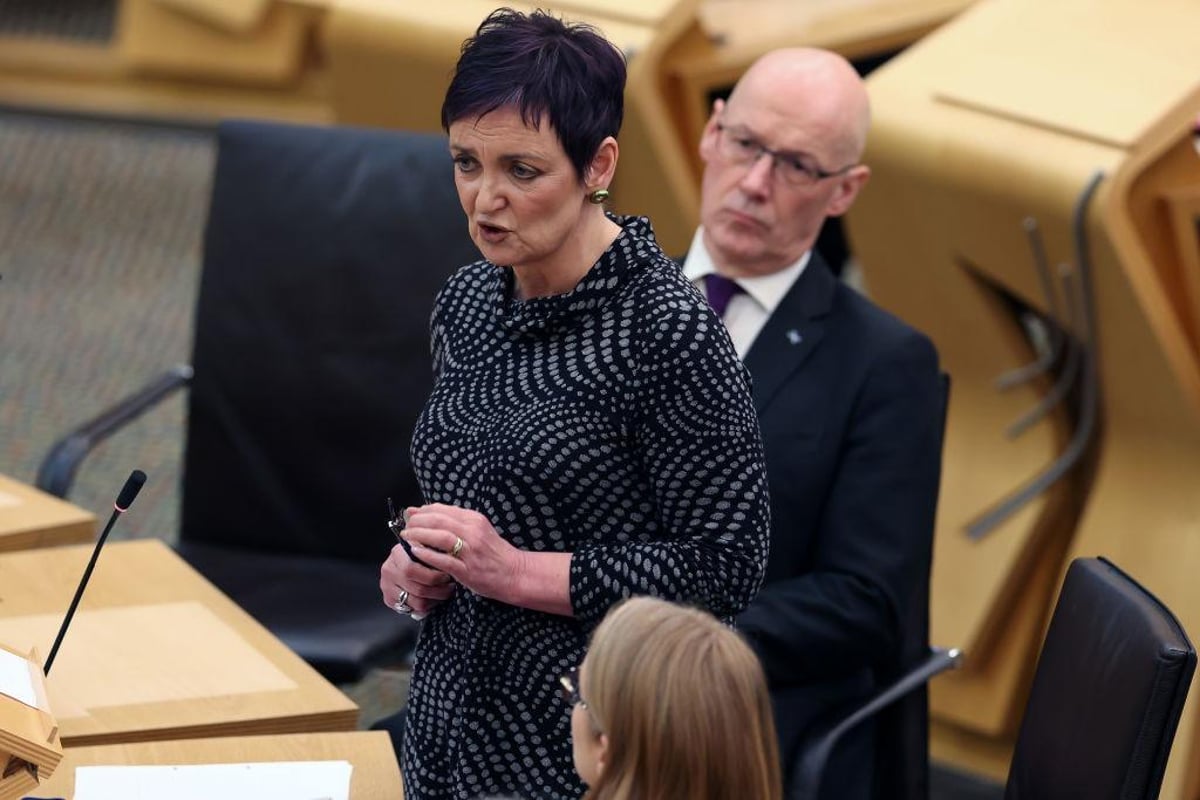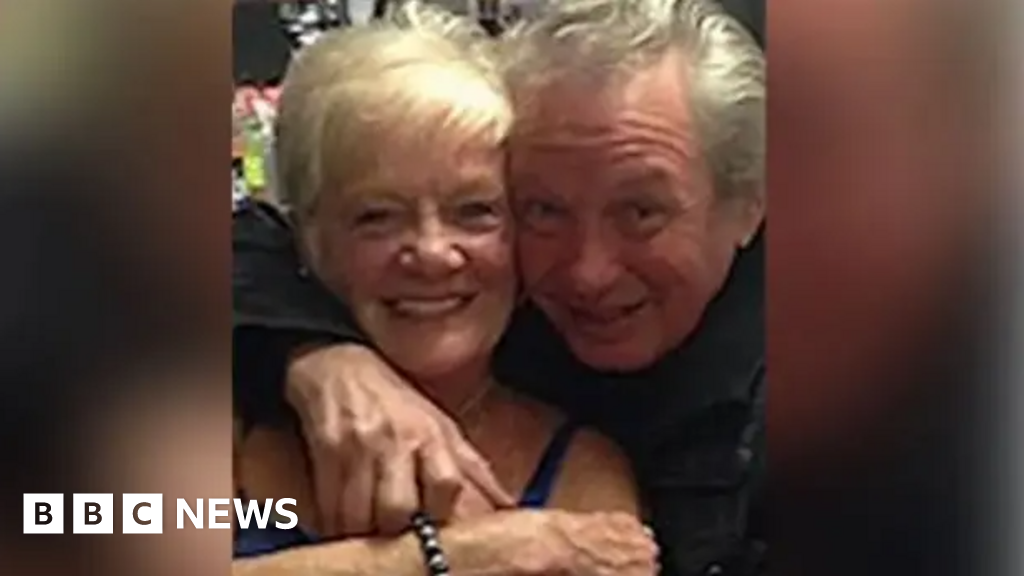SNP escape row over sexual offences court as MSPs poised for vote to abolish ‘not proven’ verdict
By David Bol
Copyright scotsman

SNP ministers survived a Holyrood row over the establishment of a sexual offences court as MSPs prepared for a historic vote on whether to abolish Scotland’s not proven verdict. The Scottish Government’s Victims, Witnesses and Justice Reform Bill will go to a final vote on Wednesday, which, if agreed, will axe the not proven verdict and alter jury majorities to two thirds, along with a host of other reforms to Scotland’s legal system. The legislation will also allow for a sexual offences court to be set up, despite opposition from Scottish Labour, the Conservatives and Liberal Democrats, after a proposal to remove the initiative from the Bill was voted down by SNP and Green MSPs by 66 to 46. Scottish Labour justice spokesperson Pauline McNeill told MSPs that a division for sexual offences should be established within the High Court instead and raised concerns the new court will fail to reduce the backlog of trials in the High Court. She said: “The creation of a standalone court is a big bureaucratic, organisational change and I am not convicted that will get delay down. That is my primary worry.” Former Scottish Conservative leader Douglas Ross warned that although “on the face of it” it sounds “like something positive” to set up a specialist court, “when you look at the detail, there are too many questions that remain unanswered” and “too many issued that remain rectified”. READ MORE: What is in SNP’s Victims, Witnesses and Justice Reforms Bill? ‘Not proven’ verdict, sexual offences court SNP Justice Secretary Angela Constance admitted it was a “disappointment” there had been no consensus with MSPs from all parties, but warned Ms McNeill’s proposal would “create additional complexity and bureaucracy”. She accused Labour of attempting to scupper plans that have been “developed over years with victims and partners” and instead push a plan that has been “resoundingly rejected by virtually every senior figure in the criminal justice system”. The SNP minister accused Ms McNeill of tabling a proposal that “prioritises hierarchies, status and tradition over progressive and practical solutions”. Ms Constance said: “A standalone national specialist sexual offences court will respond more appropriately to the unique needs of victims in these cases while continuing to protect the rights of the accused.” She added that the initiative will improve “the way complainers are treated” and “ensure that cases reach trial more quickly”. Former SNP first minister Nicola Sturgeon argued that “it is the overwhelming view of survivors of sexual offences that a standalone specialist court would help reduce the compounding trauma that they are often subjected to”. Ahead of Wednesday’s final vote, Scottish Conservative leader Russell Findlay warned the Bill was poised to be “a massive missed opportunity” to reform the justice system in Scotland. He suggested that “we will look at it tomorrow” as to whether to support the Bill, but warned the Scottish Government rejecting a flurry of his party’s proposed amendments was “not a good sign”. Earlier, Ms Constance confirmed support for a proposal that if victims opt in they “will have a right to be proactively informed by the prosecutor if a plea adjustment has been agreed” between the courts and the alleged perpetrator. READ MORE: MSPs warned not to ‘cheapen guilty verdict’ as not proven to be scrapped amid jury majority fears But Mr Findlay called for all victims to be told of plea deals, as default, arguing it was “simple common sense” after warning that “far too often” plea deals are being “taken in secret”. Ms Constance warned it was important to be “building systems” that are “far more pro-active in reaching out to victims” and allow them to be “empowered to choose what information” they receive. Addressing a proposed amendment that would “compel prosecutors to contact victims who had expressly opted out” of being informed, Ms Constance added: “My concern, in and around denying victims choice is…individuals who, understandably, for their own reasons, may wish to move on from what has been a traumatic or distressing experience and wish to not have further contact with the Crown Office. READ MORE: SNP to use sexual offences court to clear backlog and let survivors tell offenders about impact “To force information about plea adjustments onto victims in this way would be completely incompatible with trauma-informed practice .” Mr Findlay’s amendment that would compel parole boards to refuse releasing murderers on licence if they refused to give up the location of their victim’s remains was rejected by Ms Constance, who warned doing so would make decisions “more vulnerable to legal challenge”. A compromise, named Suzanne’s Law, had previously been backed by SNP ministers, after talks with Lib Dem MSP Jamie Greene. Mr Greene saw his amendment on victim statements, which allow for the impact of a crime on the victim to be issued in court, to be extended from a number of specified crimes to all solemn court cases, agreed by MSPs. Mr Greene said his amendment will end the “unfair two-tier system where some victims’ voices are heard in the courtroom and others are not”. READ MORE: Labour in hypocrisy row after ‘wrecking amendment’ tabled to block sexual offences court Ms Constance had previously pledged to establish a trial of expanded victim statements in the proposed new sexual offences court, and told MSPs the “alternative formats” could include “recorded or in person” statements. Scottish Conservative justice spokesperson Liam Kerr claimed it was “simply outrageous” the “SNP have chosen to vote against setting up a Scottish grooming gangs inquiry”. His amendment, that would have required a new victims commissioner to “carry out research” in relation to grooming gangs, was voted down by MSPs. Mr Kerr added: “Baroness Casey has been clear that not having one would represent a missed opportunity to investigate the scale of abuse carried out here and risk Scottish victims not being heard. “This is an abject betrayal of victims.” But in a letter to Mr Kerr, sent before the debate, Ms Constance said that “proper responses” to child sexual exploitation was being done by the National Child Sexual Exploitation Strategic Group and a Police Scotland review. READ MORE: Rape survivor behind campaign to scrap not proven verdict tells MSPs to end ‘harrowing process’ She added: “Adding these responsibilities to those of the commissioner would create unnecessary delay given the post is still to be established and recruited for, and inefficient duplication, given the work outlined above and the engagement of the children and young people’s commissioner in this work.” MSPs will vote on the Bill as amended on Wednesday, which will determine whether Scotland’s not proven verdict will be abolished.



